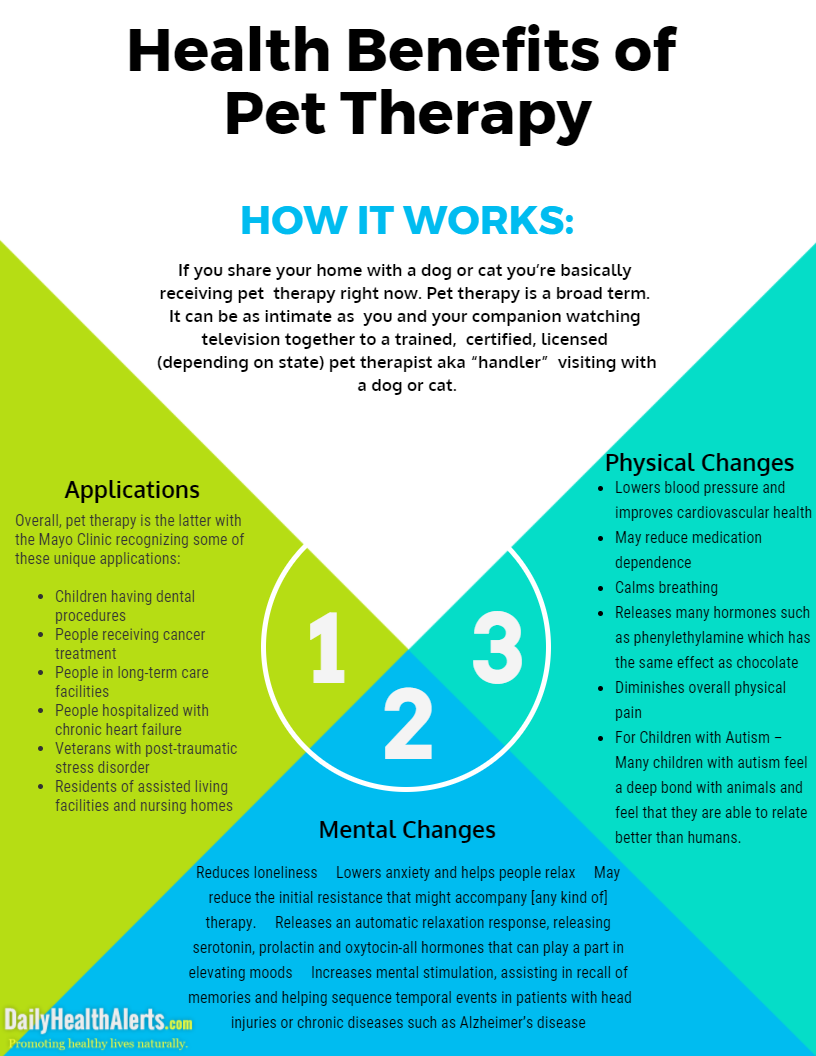Sometimes it is the experience of being around an animal that can lift your mood. Most would agree that a cuddly puppy or purring kitten is irresistible, even for those that may be allergic.
Many other components also come into play when connecting with a domesticated animal. These health benefits of pet therapy show how connecting with an animal can be just as beneficial as conventional pharmaceuticals, with way better side-effects.
Pet Therapy: How It Works
If you share your home with a dog or cat you’re basically receiving pet therapy right now. Pet therapy is a broad term. It can be as intimate as you and your companion watching television together to a trained, certified, licensed (depending on state) pet therapist aka “handler” visiting with a dog or cat. Overall, pet therapy is the latter with the Mayo Clinic recognizing some of these unique applications:
When pet therapy scenarios occur, smiles are long and wide. As a result, a whole host of health benefits emerge. If you ask someone how they feel before pet therapy and then immediately after, you almost always receive a positive answer.

Systemic Reaction: Mental and Physical Changes
Positive reactions mean increased health and after nuzzling your nose into the soft coat of a fresh smelling puppy or have looked into the eyes of an introspective kitten, you’d probably feel pretty good too.
Studies confirm the health benefits behind the smiles. UCLA released the paper ‘Animal-Assisted Therapy Research Findings’ which describes some of the benefits well, breaking down the overall systemic mental and physical reaction a human may experience during a pet therapy session.
Mental
Physical
It Easily Crosses Over
Although pet therapy is a valid modality, if an animal companion is in your life these health benefits can easily cross over to you.
Published in ‘Current Gerontology and Geriatrics Research,’
“In one study, elderly Latino pet owners, mean age 66, responded to a survey of their attitudes toward their dogs and health. Two-thirds considered the dogs to be their “best friends” and “reason for getting up in the morning” and their health to be better “than most people,” and seventy-five percent deemed their health “excellent.” Future investigations can clarify such influences.”
There is also the health benefit of social interaction which some might call, “pet therapy socialization”.
The International Federation on Ageing, (IFA) reported on how owning a dog can enhance human connection as well, which also has its health benefits.
“an Australian study found that more than half of all dog owners (and just under half of pet owners in general) confirm that they meet people in their neighbourhood as a result of their pet and more than 80 percent of dog owners talk to other people when out walking their dogs Referred to as ‘social capital’, this connectivity is shown to have positive effects on the community’s sense of its own health as well as the fiscal health of a society (Australian Companion Animal Council, 2009).”
The many health benefits of pet therapy provide a look into how something as simple as connecting with an animal can enhance your life. If allergic, ask about hypoallergenic animals or see a holistic practitioner for natural remedies which just may be worth the pet therapy benefits.